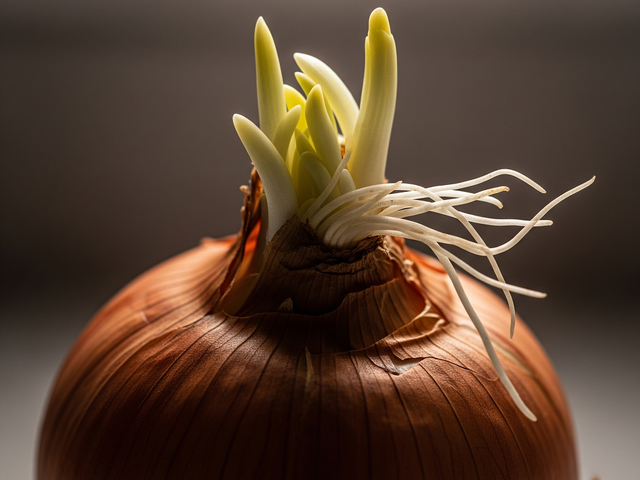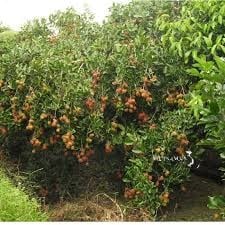While some sprouted vegetables, such as potatoes, can contain toxins, sprouted onions are not dangerous. However, sprouts can affect the flavor and quality of the onion, according to Verywell Health (USA).

Sprouted onions that show no signs of spoilage are still edible.
PHOTO: AI
Experts say sprouting onions are safe as long as they don’t show signs of spoilage, such as softening, oozing liquid, or having a strange odor. The green sprouts are the result of a natural process in which onions begin to germinate in warm, moist conditions.
However, when sprouting, onions use stored sugars and nutrients to grow sprouts, resulting in softer and more bitter onions than fresh onions. Therefore, sprouted onions are often recommended for use in cooked dishes such as stir-fries, soups, boiled or stews instead of eating them raw. Cooking sprouted onions reduces the bitterness.
In fact, onion sprouts are not only safe, but may also provide health benefits. Some studies have shown that onion sprouts contain higher levels of antioxidants and phytochemicals than unsprouted onions. These antioxidants are beneficial for overall health.
However, there are some cases where sprouted onions should not be eaten, such as when they are soft or oozing, have a strange smell, are moldy, or have very long sprouts. Soft or oozing onions are signs of decomposition, while those with a foul smell or mold are not edible. Very long sprouts indicate that the nutritional content of the onion has been significantly reduced due to being used to grow sprouts.
To avoid sprouting, onions should be stored in a cool, dry, dark place. Light and high humidity will stimulate the sprouting process. Humidity in the refrigerator also promotes sprouting. Also, avoid storing onions near potatoes, as potatoes emit gases that can stimulate onion sprouting more quickly, according to Verywell Health .
Source: https://thanhnien.vn/hanh-tay-moc-mam-xanh-an-co-an-toan-185250607220653079.htm

























![[Photo] Discover the "wonder" under the sea of Gia Lai](https://vphoto.vietnam.vn/thumb/1200x675/vietnam/resource/IMAGE/2025/8/6/befd4a58bb1245419e86ebe353525f97)





![[Photo] Nghe An: Provincial Road 543D seriously eroded due to floods](https://vphoto.vietnam.vn/thumb/1200x675/vietnam/resource/IMAGE/2025/8/5/5759d3837c26428799f6d929fa274493)

































































Comment (0)